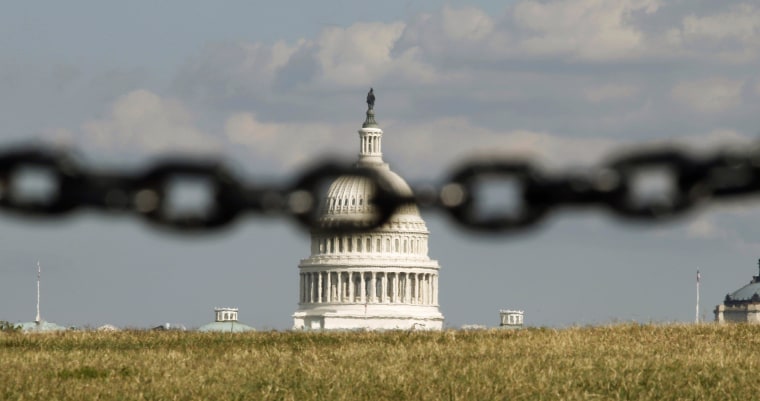Remember the VA scandal? Bowe Bergdahl? The big to-do over Mitch McConnell’s easy primary win in Kentucky? The even bigger to-do about Majority Leader Eric Cantor’s stunning loss in his primary?
Those events all took place less than six months ago. But it might seem longer than that, since the news cycle has since been dominated by the shootings in Ferguson, then Ebola, then ISIS, then Ebola.
While elections are ultimately decided by those who decide to make that little extra effort and cast a ballot on or before Election Day, the overall political environment has been a long time in the making. Voters’ general anger with the Obama administration this term may have gelled around the NSA scandal (broke June 2013), the IRS targeting story (broke May 2013), the problems with HealthCare.Gov (starting in October 2013), Obama’s handling of ISIS (starting August 2014) or Ebola (now), just to name a few. And similarly, big-picture frustration with Republicans in Congress over the past two years could be pegged back to the government shutdown (October 2013), the slow death of immigration reform (Fall 2013-Summer 2014), or the blocking of background-check legislation (April 2013).
Here’s a look back at some of the big national events that have shaped the last two years in politics:
January 21, 2013: Obama delivers second inaugural address
Jan. 23: Hillary Clinton testifies before Congress on deadly Benghazi attacks
April 17: Filibuster blocks Senate background-check legislation
May 10: IRS acknowledges special scrutiny of Tea Party groups applying for tax-exempt status
June 5: First Edward Snowden NSA revelations appear in the Guardian newspaper
June 25: U.S. Supreme Court invalidates key parts of the Voting Rights Act
June 26: U.S. Supreme Court strikes down the Defense of Marriage Act
June 27: Bipartisan comprehensive immigration legislation passes the Senate
Oct. 1 : Government shutdown begins, lasting until October 17
Oct. 1: Enrollment begins in health-care exchanges
Oct. 21: Obama addresses problems associated with HealthCare.Gov
Oct. 23: Der Spiegel reports German Chancellor Merkel’s “strong suspicion” of NSA tracking her phone
__
January 9, 2014: Chris Christie says he “knew nothing” and was “misled” by his staff about the closure of lanes on the George Washington Bridge
Jan. 17: Obama calls for significant changes in NSA data-collection methods
April 2: U.S. Supreme Court strikes down limits on total individual campaign contributions
April 10: HHS Secretary Kathleen Sebelius resigns
April 17: Obama announces 8 million enrolled in health-care exchanges
May 6: Thom Tillis wins GOP Senate primary in North Carolina
May 20: Mitch McConnell wins GOP Senate primary in Kentucky
May 27: Rep. Ralph Hall (R-TX) becomes first congressional incumbent to lose a primary/runoff
May 30: Obama accepts Eric Shinseki’s resignation after scandal engulfs Veterans Department
May 31: Obama announces release of U.S. soldier Bowe Bergdahl from Taliban captivity
June 10: House Majority Leader Eric Cantor (R-VA) loses GOP primary
June 24: Sen. Thad Cochran (R-MS) wins GOP runoff, despite finishing second in original primary
July 17:Surface-to-air missile destroys Malaysian Airlines Flight 17 over Eastern Ukraine
Aug. 5: Sen. Pat Roberts (R-KS) wins GOP primary
Aug. 7: Sen. Lamar Alexander (R-TN) wins GOP primary
Aug. 8: U.S. begins first airstrikes against ISIS – outside of Kurdish city of Erbil
Aug. 9: Hawaii Gov. Neil Abercrombie (D) loses primary
Aug. 9: Michael Brown, an unarmed black teenager, is shot and killed by a police officer in Ferguson, MO
Aug. 19: ISIS releases video showing beheading of American journalist James Foley
Sept. 3: Democratic Senate nominee in Kansas, Chad Taylor, withdraws from race
Sept. 6: White House announces it will delay executive action on immigration until after the midterms
Sept. 10: Obama delivers primetime speech outlining U.S. strategy against ISIS
Sept. 22: U.S. launches first airstrikes against ISIS in Syria
Oct. 8: Thomas Eric Duncan dies of Ebola in Dallas, Texas
